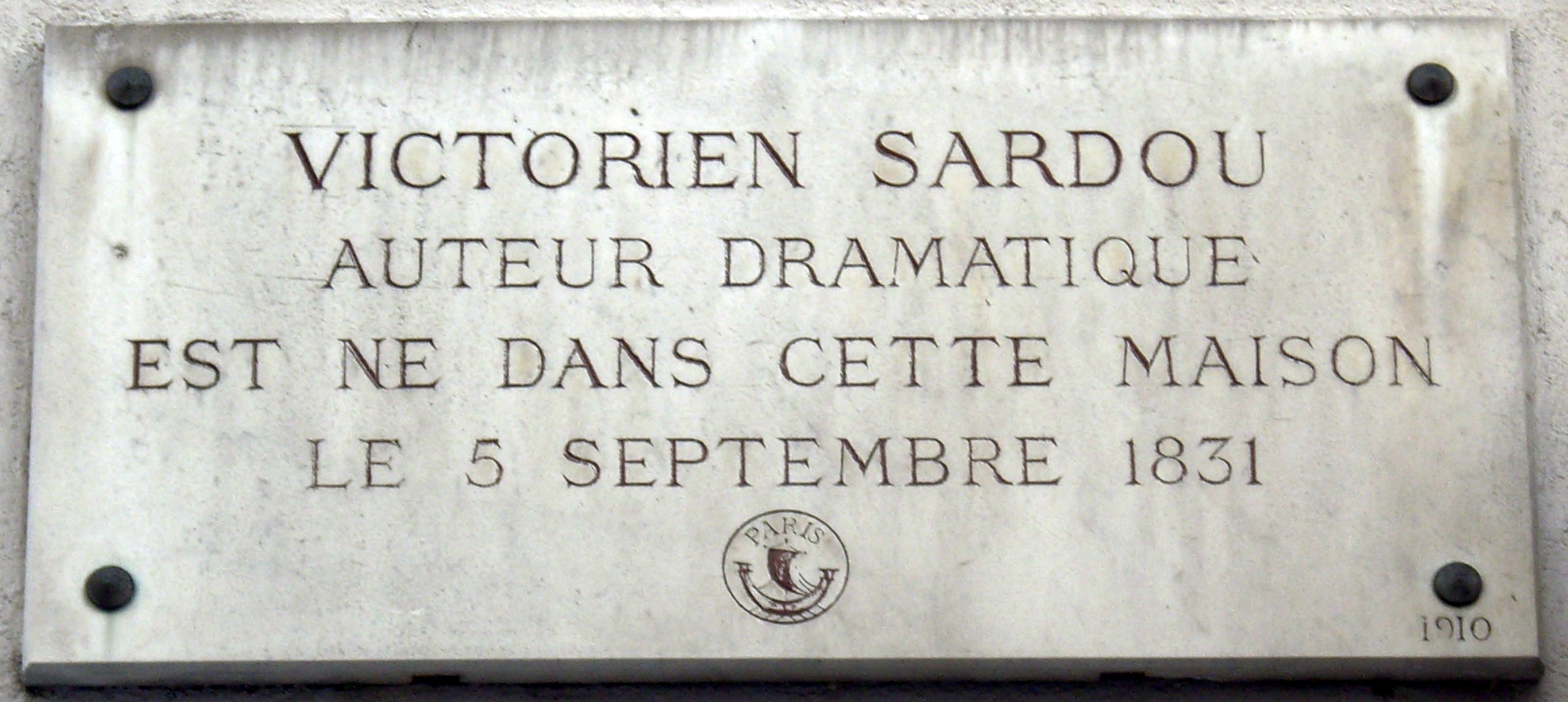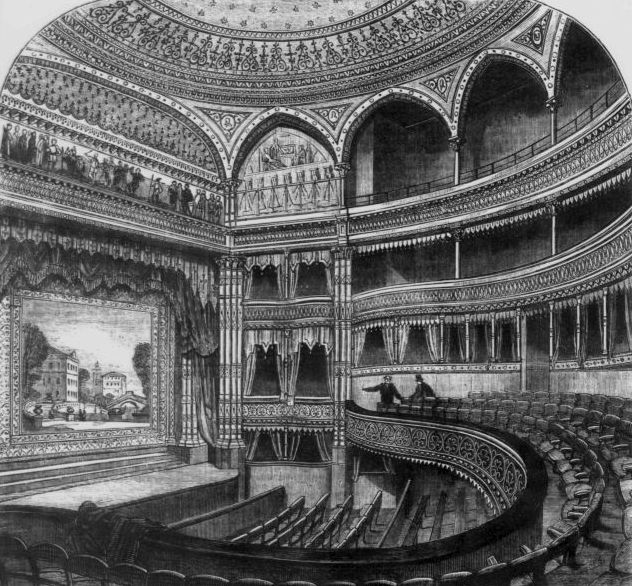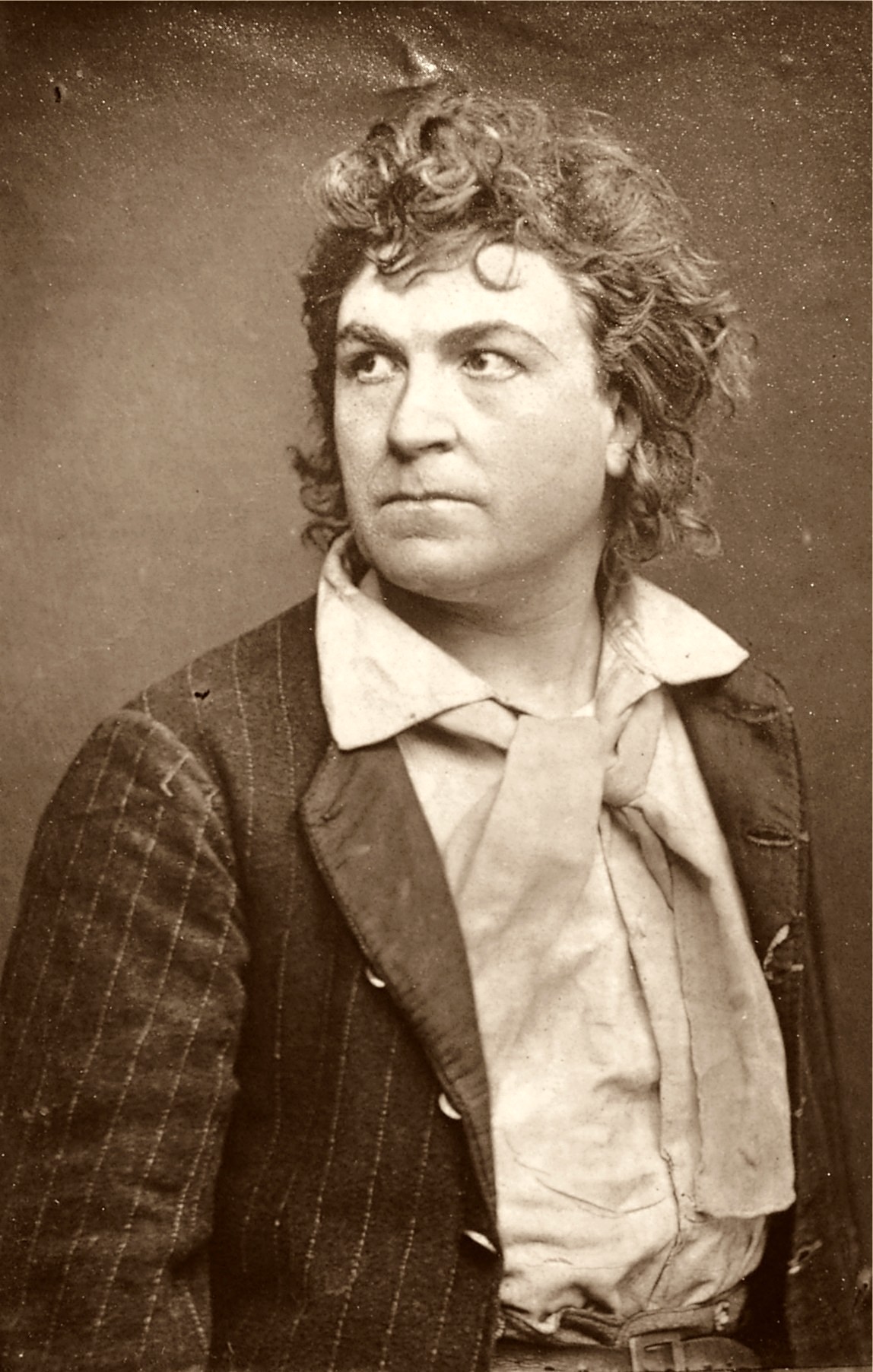|
Horace Wigan
Horace Wigan (1815/16 – 7 August 1885) was an actor, dramatist and theatre manager. He was the original Hawkshaw, the detective in the play ''The Ticket-of-Leave Man (play), The Ticket-of-Leave Man'' by Tom Taylor. Early career He was born in Blackheath, London, son of James Wigan, a teacher of languages and at one time Secretary of the Dramatic Authors' Society; he was younger brother of the actor-manager Alfred Wigan. He was first seen on stage in Dublin on 1 August 1853, in ''Sweethearts and Wives'' by James Kenney (dramatist), James Kenney. His first London appearance was at the Olympic Theatre from 1 May 1854, in ''The Happy Man'' by Lever. Wigan first attracted attention in 1858 when he opened on 4 December 1858 in the original production of ''The Porter's Knot'' by John Oxenford, playing Smoothly Smirk. From 11 April 1859 he was in the original production of ''Nine Points of the Law'' by Tom Taylor, playing Mr. Cunninghame. He played The Baron de Beaupré in John Maddison ... [...More Info...] [...Related Items...] OR: [Wikipedia] [Google] [Baidu] |
The Ticket-of-Leave Man (play)
''The Ticket-of-Leave Man'' is an 1863 stage melodrama in four acts by the British writer Tom Taylor, based on a French drama, ''Le Retour de Melun''. It takes its name from the Ticket of Leave issued to convicts when they were released from jail on parole. A recently returned convict is blackmailed by another man into committing a robbery, but is rescued thanks to the intervention of a detective. It has been described as probably being the first play about a detective. The play introduced the character of Hawkshaw the Detective, with "Hawkshaw" becoming a synonym for a detective. It was not well received by critics, but proved very popular with audiences and was constantly revived, becoming one of the standard works of Victorian melodrama. First production The play was first produced in March 1863 at the Olympic Theatre in London. The cast included Henry Gartside Neville as Robert Brierly, Horace Wigan as Hawkshaw, Robert Soutar as Green Jones and Kate Saville as May Edward ... [...More Info...] [...Related Items...] OR: [Wikipedia] [Google] [Baidu] |
Javert
Javert (), no first name given in the source novel, is a fictional character and the main antagonist of Victor Hugo's 1862 novel ''Les Misérables.'' He was presumably born in 1780 and died on June 7, 1832. First a prison guard, and then a police inspector, his character is defined by his legalist tendencies and lack of empathy for criminals of all forms. In the novel, he becomes obsessed with the pursuit and punishment of the protagonist Jean Valjean after his violation of parole. Character As Hugo depicts it, Javert's misguided and self-destructive pursuit of justice is more tragic than villainous. He is "a compound" of "respect for authority and hatred of rebellion," Hugo writes, "but he made them almost bad by dint of his exaggeration of them". Reflective thought is "an uncommon thing for him, and singularly painful" because thought inevitably contains "a certain amount of internal rebellion." He is without vices, but upon occasion will take a pinch of snuff. His life is ... [...More Info...] [...Related Items...] OR: [Wikipedia] [Google] [Baidu] |
1885 Deaths
Events January–March * January 3– 4 – Sino-French War – Battle of Núi Bop: French troops under General Oscar de Négrier defeat a numerically superior Qing Chinese force, in northern Vietnam. * January 4 – The first successful appendectomy is performed by Dr. William W. Grant, on Mary Gartside. * January 17 – Mahdist War in Sudan – Battle of Abu Klea: British troops defeat Mahdist forces. * January 20 – American inventor LaMarcus Adna Thompson patents a roller coaster. * January 24 – Irish rebels damage Westminster Hall and the Tower of London with dynamite. * January 26 – Mahdist War in Sudan: Troops loyal to Mahdi Muhammad Ahmad conquer Khartoum; British commander Charles George Gordon is killed. * February 5 – King Leopold II of Belgium establishes the Congo Free State, as a personal possession. * February 9 – The first Japanese arrive in Hawaii. * February 16 – Charles Dow publishes ... [...More Info...] [...Related Items...] OR: [Wikipedia] [Google] [Baidu] |
1815 Births
Events January * January 2 – Lord Byron marries Anna Isabella Milbanke in Seaham, county of Durham, England. * January 3 – Austria, Britain, and Bourbon-restored France form a secret defensive alliance treaty against Prussia and Russia. * January 8 – Battle of New Orleans: American forces led by Andrew Jackson defeat British forces led by Sir Edward Pakenham. American forces suffer around 60 casualties and the British lose about 2,000 (the battle lasts for about 30 minutes). * January 13 – War of 1812: British troops capture Fort Peter in St. Marys, Georgia, the only battle of the war to take place in the state. * January 15 – War of 1812: Capture of USS ''President'' – American frigate , commanded by Commodore Stephen Decatur, is captured by a squadron of four British frigates. February * February – The Hartford Convention arrives in Washington, D.C. * February 3 – The first commercial cheese factory is founded in S ... [...More Info...] [...Related Items...] OR: [Wikipedia] [Google] [Baidu] |
Victorien Sardou
Victorien Sardou ( , ; 5 September 18318 November 1908) was a French dramatist. He is best remembered today for his development, along with Eugène Scribe, of the well-made play. He also wrote several plays that were made into popular 19th-century operas such as ''La Tosca'' (1887) on which Giacomo Puccini's opera ''Tosca'' (1900) is based, and ''Fédora'' (1882) and '' Madame Sans-Gêne'' (1893) that provided the subjects for the lyrical dramas '' Fedora'' (1898) and '' Madame Sans-Gêne'' (1915) by Umberto Giordano. His play ''Gismonda'', from 1894, was also adapted into an opera of the same name by Henry Février. Early years Victorien Sardou was born at 16 rue Beautreillis (), Paris on 5 September 1831. The Sardous were settled at Le Cannet, a village near Cannes, where they owned an estate, planted with olive trees. A night's frost killed all the trees and the family was ruined. Victorien's father, Antoine Léandre Sardou, came to Paris in search of employment. He was in su ... [...More Info...] [...Related Items...] OR: [Wikipedia] [Google] [Baidu] |
Sidcup
Sidcup is an area of south-east London, England, primarily in the London Borough of Bexley. It is south-east of Charing Cross, bordering the London Boroughs of London Borough of Bromley, Bromley and Royal Borough of Greenwich, Greenwich. Before the creation of Greater London in 1965, it was in the Historic counties of England, historical county of Kent. The name is thought to be derived from meaning "seat shaped or flat topped hill"; it had its earliest recorded use in 1254. The population of Sidcup, including its neighbourhoods Foots Cray, North Cray, Albany Park, Bexley, Albany Park, Longlands, Ruxley, Blackfen and Lamorbey, was 43,109 in 2011. History Origins Sidcup originated as a tiny hamlet on the road from Maidstone to London. According to Edward Hasted, "Thomas de Sedcopp was owner of this estate in the 35th year of king Henry VI of England, Henry VI. [i.e. in the 1450s] as appears by his deed." Hasted described Sidcup in the latter part of the 18th century as "a ... [...More Info...] [...Related Items...] OR: [Wikipedia] [Google] [Baidu] |
Clement Scott
Clement William Scott (6 October 1841 – 25 June 1904) was an influential English theatre critic for ''The Daily Telegraph'' and other journals, and a playwright, lyricist, translator and travel writer, in the final decades of the 19th century. His style of criticism, acerbic, flowery and (perhaps most importantly) carried out on the first night of productions, set the standard for theatre reviewers through to today. Scott accumulated enemies among theatre managers, actors and playwrights as years went on, picking quarrels with William Archer, Ibsen, George Bernard Shaw and others. After he gave a particularly ill-considered 1898 interview, in which he attacked the morals of theatre people, especially actresses, he was forced to retire as a theatre critic and his reputation and prospects suffered badly until, by the end of his life, he was impoverished. Life and career Born the son of William Scott, the perpetual curate of Hoxton in north London, Scott converted to Roman Cat ... [...More Info...] [...Related Items...] OR: [Wikipedia] [Google] [Baidu] |
Gaiety Theatre, London
The Gaiety Theatre was a West End theatre in London, located on Aldwych at the eastern end of the Strand. The theatre was first established as the Strand Musick Hall in 1864 on the former site of the Lyceum Theatre. In 1868, it became known as the Gaiety Theatre and was, at first, known for music hall and then for musical burlesque, pantomime and operetta performances. From 1868 to the 1890s, it had a major influence on the development of modern musical comedy. Under the management of John Hollingshead until 1886, the theatre had early success with ''Robert the Devil'', by W. S. Gilbert, followed by many other burlesques of operas and literary works. Many of the productions starred Nellie Farren. Hollingshead's last production at the theatre was the burlesque ''Little Jack Sheppard'' (1885–86), produced together with his successor, George Edwardes. Edwardes's first show, ''Dorothy'', became a long-running hit. In the 1880s and 90s, the theatre had further success with a ... [...More Info...] [...Related Items...] OR: [Wikipedia] [Google] [Baidu] |
Henry Gartside Neville
Thomas Henry Gartside Neville (20 June 1837 – 19 June 1910) was an English actor, dramatist, teacher and theatre manager. He began his career playing dashing juvenile leads, later specialising in Shakespearean roles, modern comedy and melodrama. His most famous role was as Bob Brierley in Tom Taylor's '' The Ticket-of-Leave Man''. As the manager of the Olympic Theatre from 1873 to 1879, he presented numerous successful productions. In later years, he became a respected character actor. Biography Early years Neville was born in Manchester, England, son of John Garside Neville and his second wife Mary Anna, ''née'' Gartside (died 1895).Charles_Dickens.html" ;"title="No Thoroughfare'' (1868) by Charles Dickens">No Thoroughfare'' (1868) by Charles Dickens and Wilkie Collins. Neville is third from left. From 1857 to 1860 Neville acted in the English provinces and Scotland. When the tragedian John Vandenhoff made his farewell performance in 1858 at the Theatre Royal, Liverpool, ... [...More Info...] [...Related Items...] OR: [Wikipedia] [Google] [Baidu] |
Benjamin Nottingham Webster
Benjamin Nottingham Webster (3 September 17973 July 1882) was an English actor-manager and dramatist. Early life Webster was born in Bath, the son of a dancing master. Career First appearing as Harlequin, and then in small parts at Drury Lane, he went to the Haymarket Theatre in 1829, and was given leading comedy character business. Webster was the lessee of the Haymarket from 1837 to 1853; he built the new Adelphi Theatre (1859); later the Olympic Theatre, Princess's Theatre, London and St James's Theatres came under his control; and he was the patron of all the contemporary playwrights and many of the best actors, who owed their opportunity of success to him. He wrote, translated or adapted nearly a hundred plays. As a character actor he was unequalled in his day, especially in such parts as Triplet in ''Masks and Faces'', Joey Ladle in ''No Thoroughfare'', and John Peerybingle in his own dramatization of ''The Cricket on the Hearth''. Webster took his formal farewe ... [...More Info...] [...Related Items...] OR: [Wikipedia] [Google] [Baidu] |
Tom Taylor
Tom Taylor (19 October 1817 – 12 July 1880) was an English dramatist, critic, biographer, public servant, and editor of ''Punch'' magazine. Taylor had a brief academic career, holding the professorship of English literature and language at University College, London in the 1840s, after which he practised law and became a civil servant. At the same time he became a journalist, most prominently as a contributor to, and eventually editor of ''Punch''. In addition to these vocations, Taylor began a theatre career and became best known as a playwright, with up to 100 plays staged during his career. Many were adaptations of French plays, but these and his original works cover a range from farce to melodrama. Most fell into neglect after Taylor's death, but ''Our American Cousin'' (1858), which achieved great success in the 19th century, remains famous as the piece that was being performed in the presence of Abraham Lincoln when he was assassinated in 1865. Life and career Earl ... [...More Info...] [...Related Items...] OR: [Wikipedia] [Google] [Baidu] |
Andrew Aguecheek
Sir Andrew Aguecheek is a fictional character in William Shakespeare's play ''Twelfth Night, or What You Will''. One of the supporting characters, Sir Andrew is a stereotypical fool, who is goaded into unwisely duelling with Cesario and who is slowly having his money pilfered by Sir Toby Belch. He is dim-witted, vain and clownish. His role in the play not only provides comedy through his pathetic situation and his long speech, but also by his distinct, long-faced appearance and garish dress sense. The role has been a favourite for actors and has been performed by Alec Guinness, Christopher Plummer, Paul Scofield and Roger Rees. Background and character Sir Andrew first appears in the third scene of Act I, as the so-called friend of Sir Toby Belch. Sir Andrew is a guest at the home of Sir Toby's niece Lady Olivia, where Sir Toby, a drunkard and glutton, resides. Although we are not made aware of Sir Andrew's family or connections, it is said that his annual income is 3,000 ... [...More Info...] [...Related Items...] OR: [Wikipedia] [Google] [Baidu] |







